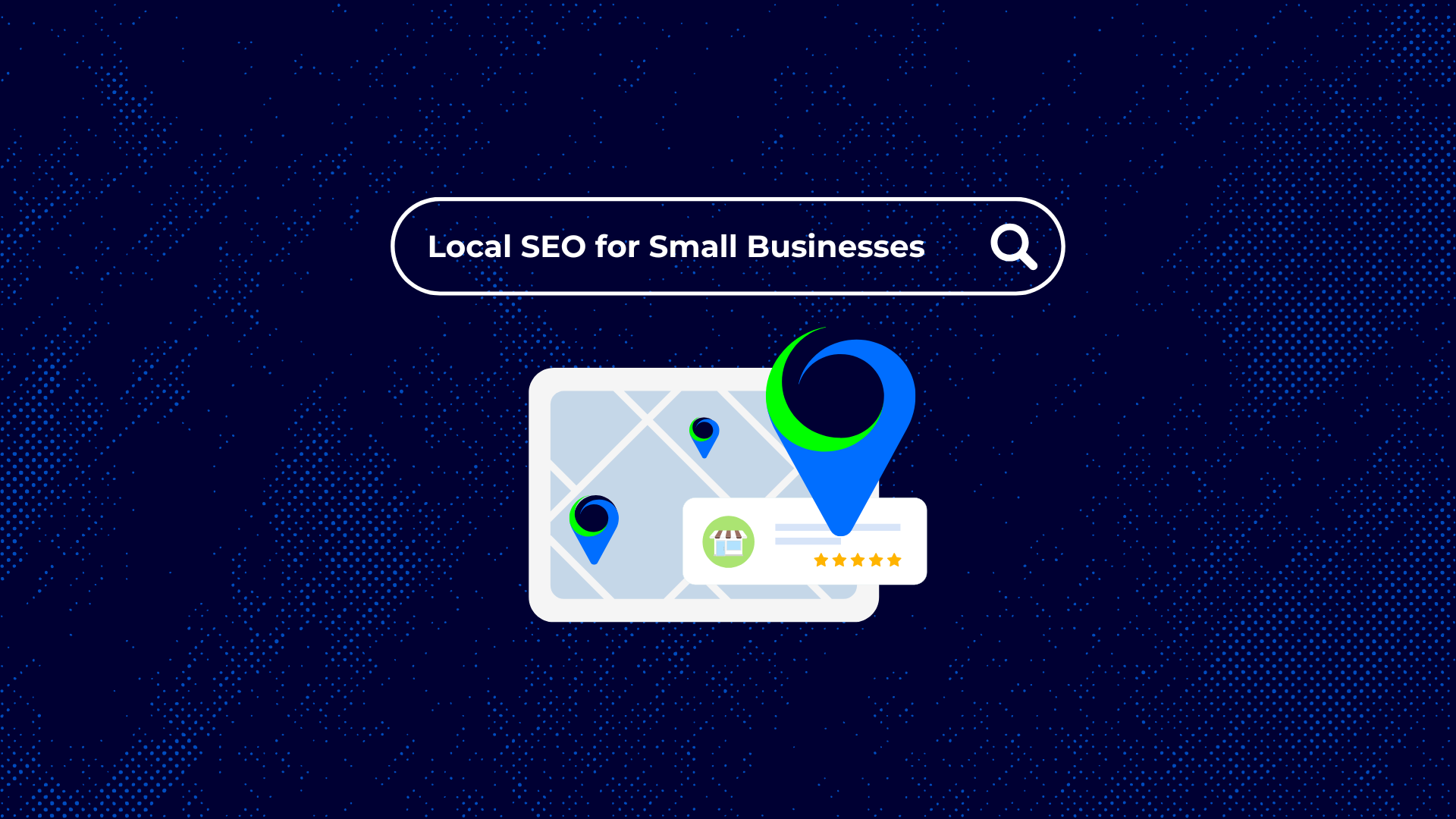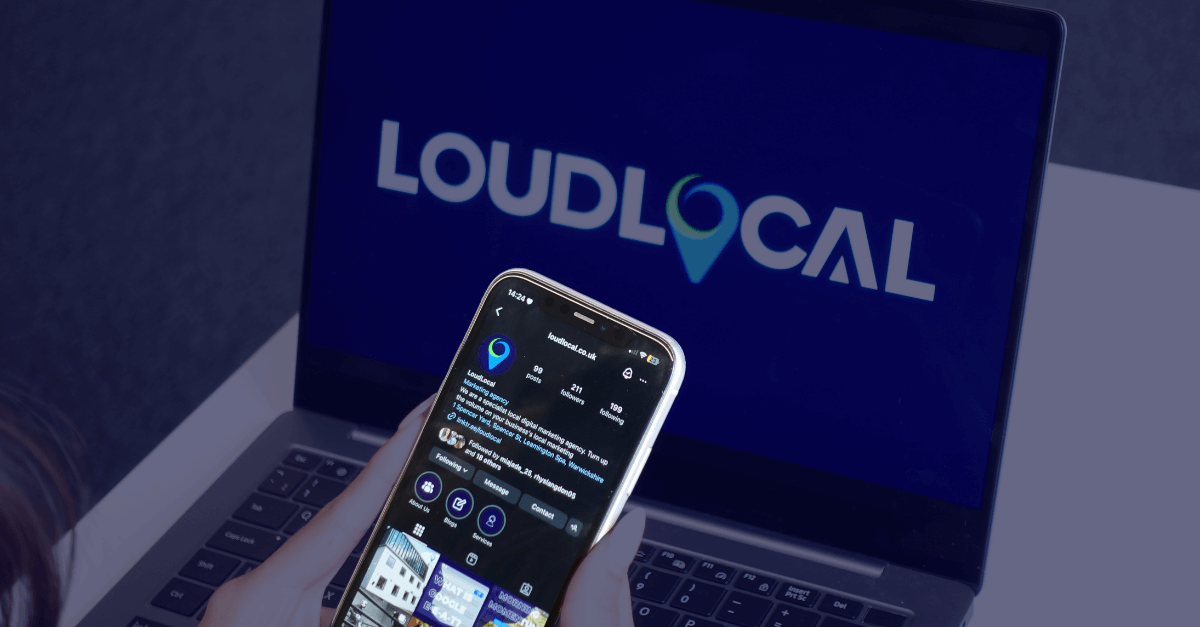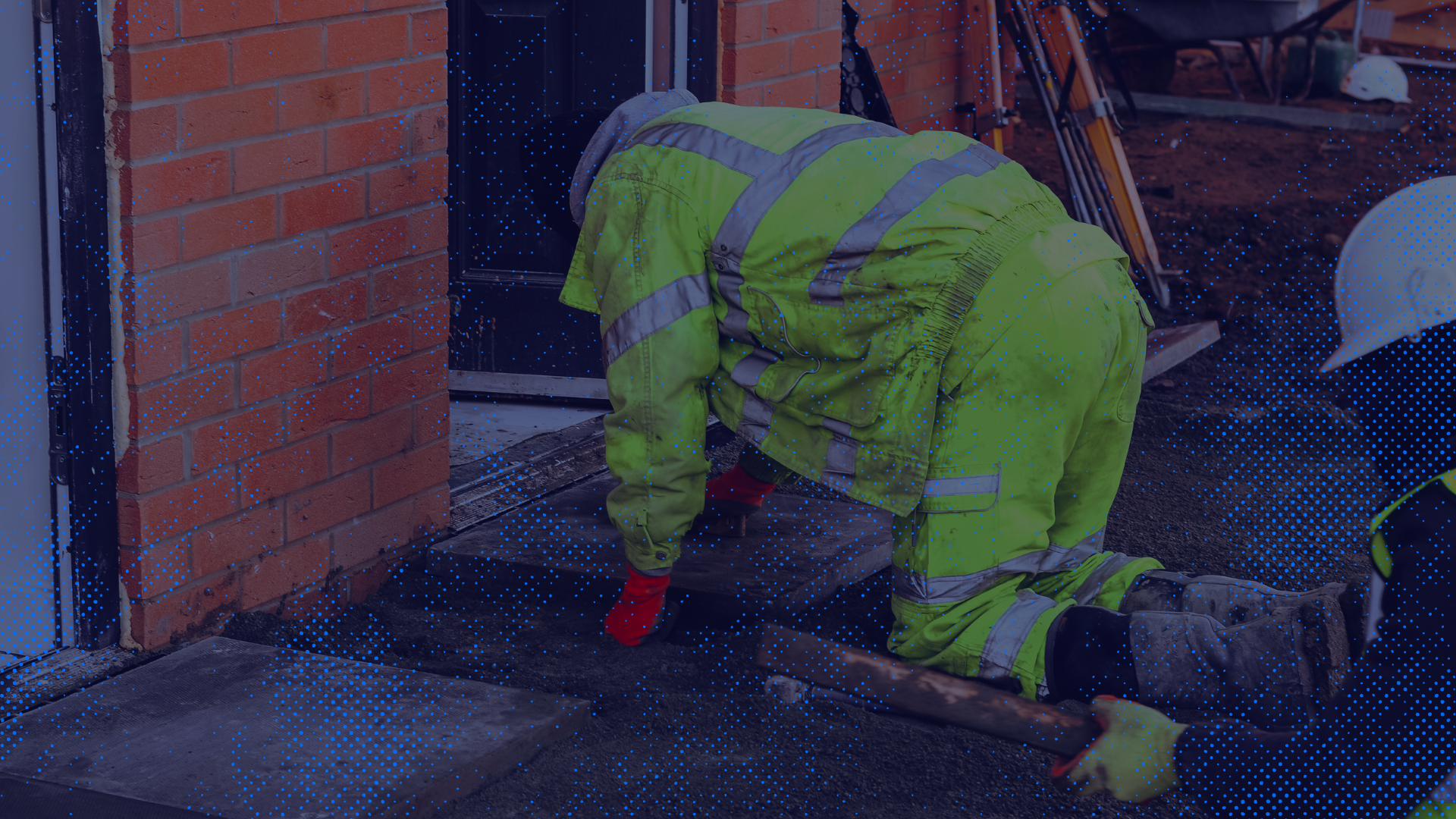How AI Impacts Our Planet & What it Means for Your Small Business
Artificial Intelligence (AI) has rapidly become a part of everyday life, from writing tools and chatbots to customer support and appointment systems....
Got a question, or need help with something?
A member of the LoudLocal team is on hand to help you.
The Brickyard, Unit 2, Queen's Rd, Kenilworth, Warwickshire, CV8 1JQ
5 Merchant Square, Paddington, London, W2 1AY
11 min read
Taya Grao-Randall
:
Nov 21, 2025 3:52:26 PM
Getting found by local customers online isn’t some magic trick, it’s about making sure your business shows up when people nearby are searching for what you do. This local SEO guide is your straightforward, comprehensive guide to understanding local search engine optimisation (SEO) in 2025. It’s not about flashy campaigns or going viral; it’s about showing up where it matters most: the local search results on Google, maps, and directories.
This complete guide walks you through the essentials of local SEO, giving you the practical steps you need to get seen by people who actually want your products or services and live nearby. We cover what local SEO really means, how it works today, and the practical actions that beginners and small businesses can take without wasting time or money. The local SEO strategy outlined here focuses on aligning your website and listings with what local searchers expect.
Local SEO (Search Engine Optimisation) is all about making sure your business shows up in Google when people nearby are looking for what you offer. Think of it like this:
Local search is what your customers do. They go on Google and type “locksmith near me” or “best coffee in [your town].” Google doesn’t just list random websites; it shows a map, business names, contact details, and reviews. That’s called the local pack, and it’s where you want your business to appear.
Local SEO is what you do to get your business into those results. That means setting up and updating your Google Business Profile, collecting reviews, adding photos, and making sure your website makes it clear what you do and where you are.
It’s not about reaching the whole country or going viral. It’s about being visible to the people close enough to call, book, and buy from you. For trades and small businesses, local SEO is the key to turning local searches into real customers.
Google needs three things to decide if your business deserves to show up in local search:
What you do – are you a plumber, roofer, hairdresser, café?
Where you are – what town, city, or area do you serve?
If people trust you – do customers leave good reviews, and do you look reliable online?
To figure all that out, Google pulls information from a few places:
Your Google Business Profile (set up through Google Business Manager). This is the listing that shows on the map with your name, phone number, hours, reviews, and photos.
Your website – the words on your site, especially pages that mention your services and locations (for example, “boiler repair in Coventry”).
Online directories and citations – these are mentions of your business details (name, address, phone number) on sites like Yelp, Thomson Local, or Checkatrade.
Customer reviews – the more genuine, positive reviews you have, the more trust you build with both Google and real people.
Local content and links – things like blog posts about your area, news about local events, or other trusted websites linking back to you.
Google takes all of this and uses it to decide whether you should show up in local results, especially in the local pack (the map and three businesses shown at the top when people search with local intent).
The better you manage these areas, the more likely you are to appear when someone nearby is searching for a business like yours.
When your local SEO is set up properly, your business starts showing up where it matters most - right in front of people already looking for what you offer. That means:
More local customers without paying for ads – you don’t need to throw money at Google Ads or Facebook campaigns. Your listing does the heavy lifting.
Better visibility on Google Maps – when someone zooms in on your area, your business shows up as an option. That makes it easy for them to call or get directions.
Instant trust – people are far more likely to click a business that has recent reviews, photos, and clear opening hours than one with nothing updated.
Steady leads from nearby people – these aren’t random clicks from across the country. They’re people down the road, already searching for your service.
Basically, local SEO shifts you away from relying only on word of mouth or traditional ads. Instead, it makes sure the right people can find you at the exact time they need you. That means more calls, more bookings, and more steady work.
Big companies can spend thousands on national campaigns. You don’t have to. Local SEO levels the playing field by helping you show up to the people who actually matter - the ones in your town, city, or service area.
Think of it like this: if you’re a plumber in Birmingham and someone’s boiler breaks at 10pm, they’re not waiting around. They’ll grab their phone and search “emergency plumber Birmingham.” If your local SEO is in place, it’s your number they’ll see - not a national brand with a huge budget.
That’s the power of local SEO. With a well-optimised Google Business Profile, accurate info across the web, and some solid reviews, you can stay visible, relevant, and competitive - even if you’re a one-person operation.
If you’re just getting started or want to make sure you’ve covered all the basics, this checklist keeps things simple. These easy-to-follow rules will help you keep on top of the fundamentals that really move the needle in local search.
Claim and verify your Google Business Profile
Your Google Business Profile (formerly Google My Business) is how your business shows up on Google Search and Maps. Claiming it and verifying it through Google Business Manager gives you control over everything customers see: your hours, contact info, photos, services, and reviews. Without verification, you can’t make updates, and Google might show incorrect information or let someone else take control.

Use a consistent name, address, and phone number (NAP)
Your NAP (name, address and phone number) details are the foundation of local SEO. Google uses them to confirm your business is real, reliable, and located where you say you are. If those details don’t match across the web, Google gets mixed signals - and confused Google means lower visibility for you.
Your business details should be identical everywhere - website, Google profile, directories, and socials. Even small differences (like “High Street” vs “High St”) can confuse Google and hurt trust. Keep it consistent so customers and search engines know it’s really you.
To avoid this, keep your NAP identical everywhere your business is mentioned:
Your website
Your Google Business Profile
Online directories (like Yelp, Checkatrade, Thomson Local)
Social media pages
Choose the correct business category
Be precise. Picking the right category ensures Google matches you to relevant searches. For example, if you’re a plumber, select “Plumber” not “Contractor.” If you’re a café, choose “Coffee Shop” instead of just “Restaurant.” This helps Google show your business to people who are actually searching for what you do.
Upload genuine photos
Customers trust what they can see. Upload real images of your shop, van, team, or completed jobs. For tradespeople, this could mean showing a recently fixed boiler, rewiring job, or freshly painted room. Avoid stock photos - they look fake and don’t build trust. Photos also make your profile stand out in search results.
Ask for reviews regularly
Reviews are one of the strongest trust signals for both Google and potential customers. Encourage happy clients to leave a review right after a job or sale. Make it easy by sending a direct link. The more recent and relevant reviews you have, the more likely Google is to show your business in local searches.
Respond to all reviews
Don’t ignore reviews, good or bad. Responding to positive reviews shows appreciation and professionalism. Responding calmly to negative reviews demonstrates that you take feedback seriously and care about your customers. Active engagement improves your reputation and signals to Google that your business is trustworthy.
Mention your local area on your site
Include your town, city, or service area throughout your website. For example, “we provide boiler repairs in Birmingham” is much more effective than just “we provide boiler repairs.” Use local keywords naturally on your homepage, contact page, and key service pages so Google knows where you operate. This makes it easier for local searchers to find you.
Create dedicated location pages
If you serve multiple towns or neighbourhoods, create separate pages for each area. Each page should have unique content, local keywords, and relevant contact info. This improves your chances of ranking in multiple locations rather than trying to cram everything into one page, which can confuse Google.
List your business on directories
The most important places to get your business listed are the big platforms where people actually search:Pro tip: Make sure your name, address, and phone number (NAP) are exactly the same on every listing. Even small differences can confuse Google and other search engines, making your business harder to find.
Google Business Profile – this is where most local searches happen. Your listing appears on Google Search and Maps, and managing it gives you control over your hours, photos, services, and reviews.
Apple Maps – a growing number of iPhone users rely on Apple Maps to find local businesses. Being listed here ensures you don’t miss those potential customers.
Bing Places for Business – while Bing isn’t the most popular search engine for everyday use, it’s still important. AI tools, including ChatGPT, pull business info from Bing, so being listed here increases your visibility in AI-driven searches and other Microsoft-powered platforms.
Once you’re on the major platforms, add your business to trusted directories to reinforce credibility and local visibility:
Yelp – a well-known platform where customers can find and review local businesses.
Foursquare – helps your business appear in local searches and mapping apps.
192.com – a UK-focused directory that provides business contact details and maps, helping customers find you easily.
Keep your opening hours up to date
Accurate hours are critical. If you don’t update seasonal or permanent changes, customers could show up at the wrong time and never return. Google also checks this information, and consistent, accurate hours help your ranking and improve user experience.
Post regular updates to your Google profile
Your Google Business Profile isn’t just a static listing. Treat it like a mini social media feed that pops up directly in Google Search and Maps when people look you up.

Log in to Google Business Manager, pick your business, and you’ll see the option to create a post. Use it to:
Shout about special offers or discounts
Share local news or events that matter to your customers
Upload photos of your latest jobs or new products
Announce changes to your hours or new services
These posts show up right in your profile. They prove to Google that your business is alive and kicking, which boosts your chances of showing up higher in local searches. They also give potential customers a reason to pick you over the competitor with a dusty, outdated profile.
It doesn't have to be complicated. Even snapping a quick photo of a finished job and posting it once a week is enough to keep things fresh and keep you front of mind.
Once you’ve nailed the basics, it’s worth going a step further. Local SEO isn’t just about setting things up once and forgetting about them; it’s about staying active, keeping things accurate, and showing up where it counts. These tips go beyond the foundations and focus on what’ll keep you climbing in local search in 2025.

Don’t just guess what your potential customers are searching for. Use a keyword research tool to dig into local keywords with actual search traffic. Google Keyword Planner is a solid place to start, and it’ll help shape a keyword strategy that’s grounded in what your local searchers are typing in.
If you work across more than one area, you’ll want dedicated pages for each. These should focus on that specific location’s keywords and include info that’s genuinely useful to local searchers, not just copy-paste jobs. Good location pages can be the difference between showing up or being invisible in local search engine optimisation results.
Most local searches happen on a phone. If someone has to pinch and zoom or the layout breaks, they’re gone. Test it yourself; if it feels clunky, sort it. Mobile usability is a major ranking factor and an easy one to overlook.
Slow pages hurt both your rankings and your bounce rate. Compress images, clean up bloated design elements, and keep things streamlined. A fast, clear site doesn’t just help with SEO, it makes you easier to work with.
If these are things that seem a little out of your skill set, it's highly recommended you hire an agency that can help with web design and maintenance to keep things ticking over.
Backlinks are links from other local businesses, groups, or community websites back to your site. If you’re part of a business network, sponsor a local event, or get a mention in a community group, see if they’ll link back to your site. These backlinks tell Google you’re genuinely part of the area, and that helps with visibility in the local pack and organic search results.
It’s not just about getting the right words in; it’s about understanding what your local searchers are actually looking for. If they’re after a nearby emergency plumber, your content should reflect that urgency and local intent. Think like the person searching, then shape your content accordingly.
You don’t need loads of software or a big budget to get your local SEO working. These tools are all simple to use and work well for small businesses in the UK. Most of them have free versions or affordable plans, and you only need a couple to get the job done.
This is the main one. It’s how your business shows up on Google Maps and in local search results. You can update your hours, share photos, reply to reviews, and post updates. It’s completely free, and if you haven’t set it up yet, start here.
These give you a look behind the scenes. Analytics shows how people use your website, how they found it, what pages they visited, and whether they got in touch. Search Console shows what people searched for before landing on your site and flags any issues with how your site appears in organic search results. Both are free and very handy once you get the hang of them.
This keyword research tool is great for finding local keywords and understanding search traffic in your area. It’s perfect for refining your local SEO strategy and discovering new keyword opportunities.
A comprehensive strategy for local SEO really starts with the tools mentioned above. If you want to go one step further, the following tools can help advance your SEO strategy. The basics (Google Business Profile + reviews + consistent info) are the real foundation, but if you're feeling overwhelmed, you can always refer back to a digital marketing agency for help with your local SEO.
Moz Local is another great option for managing your business listings. It pushes your business details out to the major directories and data providers, making sure your name, address, and phone number are consistent everywhere. This saves you the headache of updating every site one by one and helps build trust with both Google and customers. It’s especially useful if you’ve recently moved, changed your phone number, or want to tidy up old listings.
BrightLocal pulls everything into one place - rankings, reviews, listings, and more. It’s useful if you want a clear view of how your business is doing in local search. You can also use it to track competitors or check how your site stacks up against others in your geographic area.
If SEO feels like too much to handle, getting help can save time and hassle. But you need the right team, especially as a small business with limited resources.
Look for a service that understands small businesses and doesn’t promise overnight results. They should explain things clearly, have a solid local SEO plan, and let you keep control of your own accounts.
That’s where LoudLocal comes in. We specialise in helping small businesses boost their local SEO without confusing jargon or unnecessary costs. We focus on what works - fixing your listings, managing your Google Business Profile, getting real reviews, and making sure your business shows up when local customers search.
With LoudLocal, you get honest advice, steady results, and a partner who knows what small businesses really need. Local SEO done right to help you get found and grow.
Local SEO doesn’t have to be a headache. The basics, consistent info, good reviews and active profiles are simple, but local SEO takes time and attention. That’s where LoudLocal comes in.
We handle all the technical stuff and the day-to-day updates so you don’t have to waste your time figuring it out. No confusing jargon or wild promises - just solid, reliable work that helps local customers find your business.
We don’t just set it up and disappear. LoudLocal sticks with you, making sure your local SEO keeps working as your business grows.
You don’t have to figure it all out alone. Whether you want a hand with the heavy lifting or just some advice to get started, local SEO can be straightforward and effective with the right support.
If you enjoyed this article, consider checking out our previous one: How Often Should You Post on Social Media: A Small Business Guide.
If you're looking for Local SEO support, feel free to book a call with a member of the team. We're happy to help!

Artificial Intelligence (AI) has rapidly become a part of everyday life, from writing tools and chatbots to customer support and appointment systems....

Getting found by local customers online isn’t some magic trick, it’s about making sure your business shows up when people nearby are searching for...

Running a small business is a full-time job in itself, and finding time for social media can feel like an extra task on the list. But here’s the...
%20(1).png)
4 min read
For years having a robust SEO (search engine optimisation) strategy has proven to be an essential element of a digital marketing strategy...

If you’re a tradesperson, you already know how competitive it is out there. Whether you’re a plumber, electrician, builder, or landscaper, chances...
1 min read
Why Local Search Engine Optimisation (SEO) is Important If you are a small or local business, reaching people in your local area is vital for...